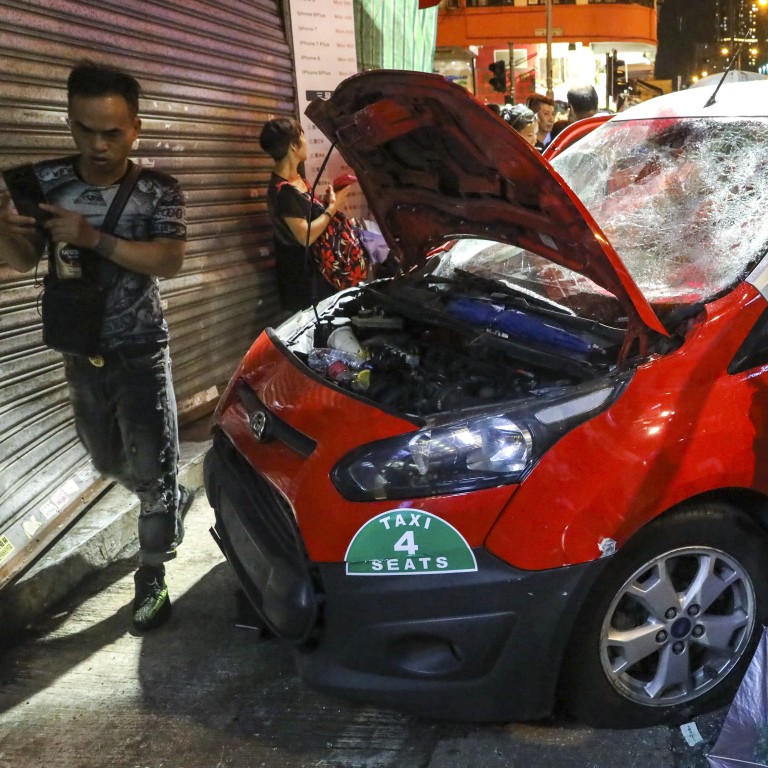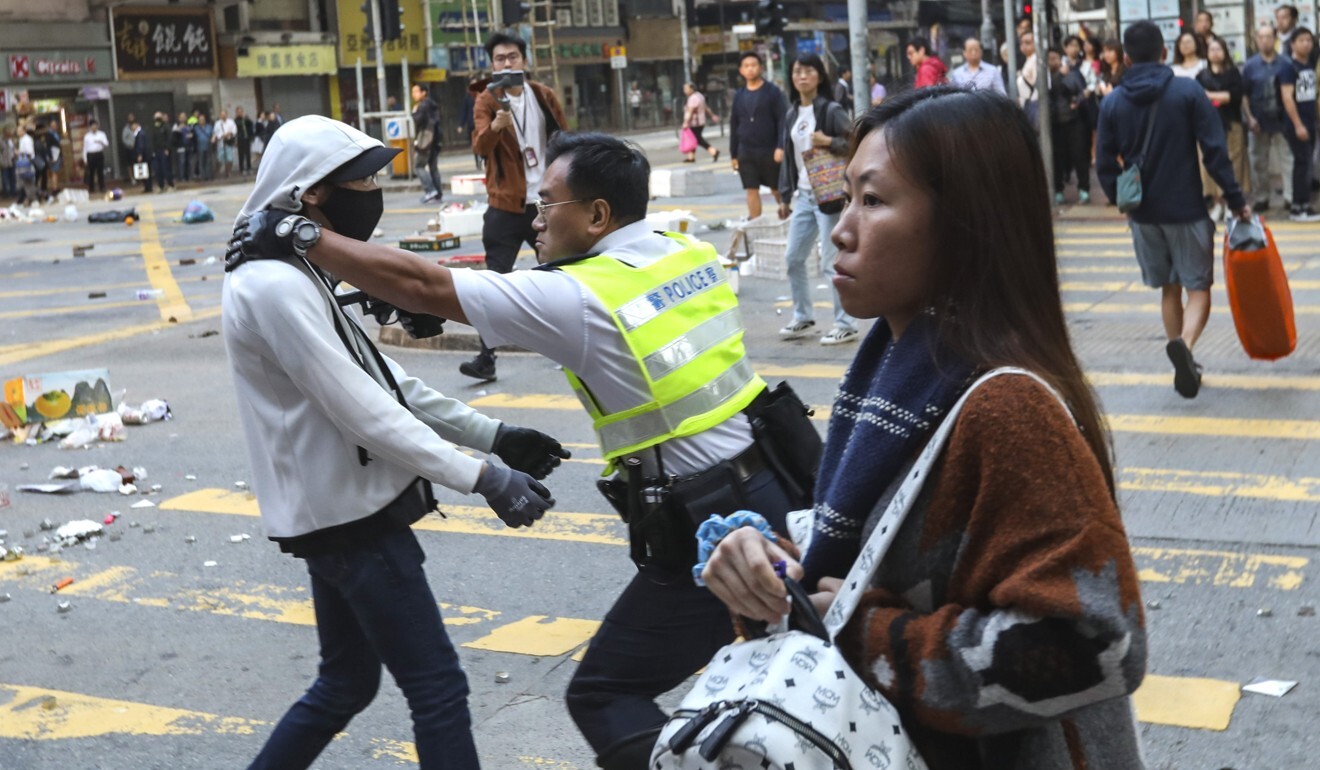
Hong Kong court throws out two private prosecutions tied to social unrest
- Democratic Party lawmaker Ted Hui loses bids to charge police officer who shot demonstrator and taxi driver accused of hitting protesters
- Justice department says both cases lacked reasonable chance of leading to convictions
A Hong Kong court threw out an opposition lawmaker’s two private prosecution bids against a policeman and a taxi driver caught up in anti-government protests last year after approving the Department of Justice’s request to quash the cases over insufficient evidence.
A representative for the department said it had come to the conclusion that the cases had no reasonable chance of leading to convictions after reviewing reports compiled by an independent police investigation team.
The department would not disclose details of the police findings, saying they were part of the confidential conversations between lawyers and their clients.
The rare legal proceedings came to a halt on Monday at West Kowloon Court, after the department decided to intervene to end the legal proceedings brought against the officer who shot a protester and taxi driver Henry Cheng Kwok-chuen, accused of ramming a crowd of demonstrators during last year’s unrest. Both cases were initiated by Democratic Party lawmaker Ted Hui Chi-fung.

Assistant Director of Public Prosecutions William Siu Kai-yip, acting on behalf of Secretary for Justice Teresa Cheng Yeuk-wah, said the minister believed the officer had not abused his powers when he shot 21-year-old Chow Pak-kwan in Sai Wan Ho on November 11.
“The available evidence reveals that [the officer] used lawful and reasonable force for the prevention of crime and/or self-defence,” Siu told Principal Magistrate Peter Law Tak-chuen.
“The evidence fell short of establishing that [the officer’s] use of the revolver had gone beyond what was allowed or empowered by the law.”
What are private prosecutions in Hong Kong and how often do they succeed?
Hui did not plan to call Chow and another protester as witnesses, which could have impinged upon the officer’s right to a fair trial, Siu said.
Teresa Cheng also found no evidence to suggest 59-year-old Henry Cheng had driven his taxi dangerously at the time of the incident in Sham Shui Po on October 6, according to Siu. The driver and three others were pulled from the car and beaten by vigilantes.
“The evidence available does not even disclose a prima facie case,” Siu added.
The police officer, who has been granted anonymity in another criminal proceeding, and Henry Cheng had been excused from attending Monday’s hearing.
The withdrawal of charges came after Eastern Court Magistrate Lam Tsz-kan found Hui had produced sufficient evidence to press ahead with three charges against the officer, including shooting with intent and two firearms charges, in June.
Shooting with intent is punishable by life imprisonment, while the other two carry a maximum jail sentence of seven years.
Hui was also permitted to charge the taxi driver with dangerous driving, which is punishable by three years’ jail and a fine.
Hong Kong’s mini-constitution, the Basic Law, stipulates that the justice department controls criminal prosecutions free from any interference. While aggrieved citizens can lodge criminal complaints against others under the common law system adopted in the colonial era, ultimate control rests in the hands of the justice secretary, who can discontinue a private prosecution by taking over and aborting the case, or refusing to endorse the indictment.
Although the court cannot bar the department from intervening in private prosecution proceedings, individuals can lodge judicial challenges against the department’s decisions in the High Court.
Following Monday’s hearing, Hui and his lawyers said they would study the grounds of the department’s intervention with a view to apply for judicial review shortly.
Hui said the department’s decision had rubbed salt into the wounds of those injured by the officer and Henry Cheng, including Chow, who survived the shot but had a kidney and half his liver removed, and a 23-year-old woman who reportedly suffered serious fractures to both legs after being run over by the taxi.
“It’s hurtful, very hurtful for them,” Hui said.
He accused the department of “working under the table” by delaying the investigations and hiding their conclusions from the public.
“I’m not convinced. I don’t think the public is convinced. I think they’re just using their power to avoid legal proceedings, to avoid legal liabilities and consequences of their wrongdoing.”
Last week, the law firm representing Henry Cheng filed to the court seeking HK$82,000 to cover its expenses over the proceedings. But the written request by KC Ho & Fong, which counts pro-establishment lawmaker Junius Ho Kwan-yiu as a senior partner, did not indicate whether Hui or the department should pay the bill.
On Monday, Magistrate Peter Law ordered the driver’s lawyers to specify their demands before the court heard their application on October 15.
Hui said outside court that he would object to the request.
